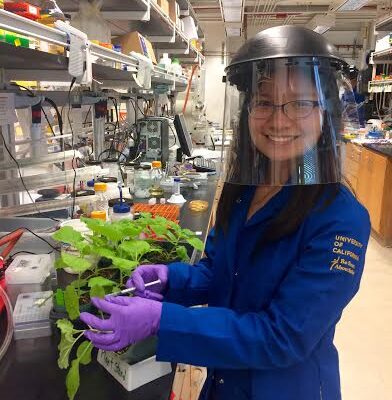Bao Nguyen Rose Hills
Investigating the Properties of Plant-Specific Splice Factor Proteins RSZ32 and RSZ33 and Their Role in Gene Regulation
Alternative splicing is a fundamental mechanism used by higher eukaryotic organisms to produce different outcomes from the same gene transcript through selection of variable splice sites. Alternative splicing gives plants the ability to modulate gene expressions in order to conserve energy resources and optimize interactions with their environment. There are many different plant-specific alternative splicing events and while they have been catalogued on a genome-wide scale, there remains little detailed knowledge about the specific, molecular mechanisms of these pathways. I am interested in studying a plant-specific alternative splicing pathway discovered in Arabidopsis thaliana which involves the Plant 5S Ribosomal RNA Mimic (P5SM) cassette exon. The aim of my project is to study two plant-specific splice factors, RSZ32 and RSZ33, by investigating their properties, functionality, and interaction with P5SM to regulate splicing. Through this project, I hope to deepen our insight on the plant-specific alternative splicing mechanism that is key to plant survival when under environmental stress.
Message To Sponsor
I am grateful that the SURF Program and the Rose Hills Foundation have granted me this opportunity to learn more about academic research. I am excited to stay in Berkeley this summer and fully immerse myself in a research project that I am very passionate about. I am confident the knowledge and experience that I will gain by the end of the SURF program will make me a better biologist and prepare me for future academic endeavors. It is a privilege to be a SURF Rose Hills fellow and for that, I am very thankful.